Source questions

 Life is marked by events of suffering, both great and small. At present there is great suffering in Turkiye (earthquake) and the Ukraine (war). Some are the products of a natural disaster impacting entire communities with grief and loss. Others are the fruit of human evil that has a profound effect on the world. Still others are private, affecting a person of a family. In all these cases people struggle to understand why it happens. And they question God’s goodness or His justice. (more…)
Life is marked by events of suffering, both great and small. At present there is great suffering in Turkiye (earthquake) and the Ukraine (war). Some are the products of a natural disaster impacting entire communities with grief and loss. Others are the fruit of human evil that has a profound effect on the world. Still others are private, affecting a person of a family. In all these cases people struggle to understand why it happens. And they question God’s goodness or His justice. (more…)
Zoology questions

 Life is marked by events of suffering, both great and small. At present there is great suffering in Turkiye (earthquake) and the Ukraine (war). Some are the products of a natural disaster impacting entire communities with grief and loss. Others are the fruit of human evil that has a profound effect on the world. Still others are private, affecting a person of a family. In all these cases people struggle to understand why it happens. And they question God’s goodness or His justice. (more…)
Life is marked by events of suffering, both great and small. At present there is great suffering in Turkiye (earthquake) and the Ukraine (war). Some are the products of a natural disaster impacting entire communities with grief and loss. Others are the fruit of human evil that has a profound effect on the world. Still others are private, affecting a person of a family. In all these cases people struggle to understand why it happens. And they question God’s goodness or His justice. (more…)
Meteorology questions

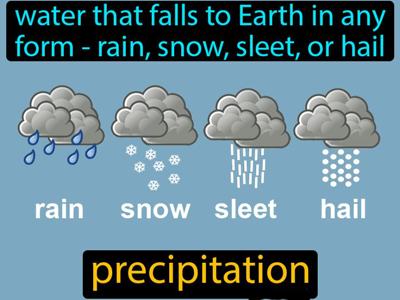 Life is marked by events of suffering, both great and small. At present there is great suffering in Turkiye (earthquake) and the Ukraine (war). Some are the products of a natural disaster impacting entire communities with grief and loss. Others are the fruit of human evil that has a profound effect on the world. Still others are private, affecting a person of a family. In all these cases people struggle to understand why it happens. And they question God’s goodness or His justice. (more…)
Life is marked by events of suffering, both great and small. At present there is great suffering in Turkiye (earthquake) and the Ukraine (war). Some are the products of a natural disaster impacting entire communities with grief and loss. Others are the fruit of human evil that has a profound effect on the world. Still others are private, affecting a person of a family. In all these cases people struggle to understand why it happens. And they question God’s goodness or His justice. (more…)
Astronomy questions

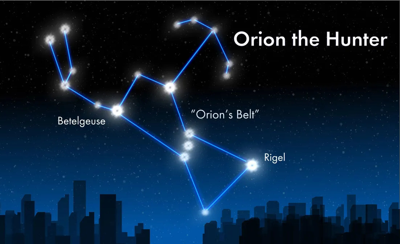 Life is marked by events of suffering, both great and small. At present there is great suffering in Turkiye (earthquake) and the Ukraine (war). Some are the products of a natural disaster impacting entire communities with grief and loss. Others are the fruit of human evil that has a profound effect on the world. Still others are private, affecting a person of a family. In all these cases people struggle to understand why it happens. And they question God’s goodness or His justice. (more…)
Life is marked by events of suffering, both great and small. At present there is great suffering in Turkiye (earthquake) and the Ukraine (war). Some are the products of a natural disaster impacting entire communities with grief and loss. Others are the fruit of human evil that has a profound effect on the world. Still others are private, affecting a person of a family. In all these cases people struggle to understand why it happens. And they question God’s goodness or His justice. (more…)
Grief & loss during the shutdown

 Grieving with hope
Grieving with hope
We’re living in unusual times. In order to control the spread of COVID-19 we’re staying home as much as possible. People are working from home and some businesses are closed.
Some people have lost their jobs and are now unemployed. There are travel restrictions. Social activities and celebrations are cancelled. There is physical (social) distancing. We have less freedom. It’s almost like wartime. There’s economic gloom with the possibility of a depression. These are unprecedented times for us. (more…)
Where were you?

 If you had the opportunity, what question would you ask God? After tragedy in his life, Job had many questions for God. But when they finally met the tables were turned and God asked Job “Where were you when I created the world”? Job was silenced because the answer was “Nowhere”.
If you had the opportunity, what question would you ask God? After tragedy in his life, Job had many questions for God. But when they finally met the tables were turned and God asked Job “Where were you when I created the world”? Job was silenced because the answer was “Nowhere”.
Question and answer
The context is that God says that Job needs to be educated on mysteries that surpass his understanding (38:2). He should have realized that many things known to God are hidden from humanity.
The first question that God asked was:
4“Where were you when I laid the earth’s foundation?
Tell me, if you understand.
5 Who marked off its dimensions? Surely you know!
Who stretched a measuring line across it?
6 On what were its footings set,
or who laid its cornerstone—
7 while the morning stars sang together
and all the angels shouted for joy?” (Job 38:4-7NIV) (more…)
When to praise God

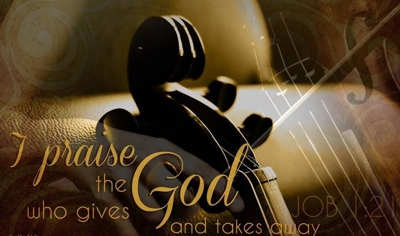 Emotions are a powerful part of our lives. But do we control our emotions or do our emotions control us? For example, do we only praise God when we feel like it?
Emotions are a powerful part of our lives. But do we control our emotions or do our emotions control us? For example, do we only praise God when we feel like it?
Job was a wealthy man with a large family who lived before the time of Moses. One day four separate disasters wiped out all his possessions and children. His oxen, donkeys and camels were stolen and his sheep were killed by lightning. This was a total loss because there was no insurance in those days. And his children died when a house collapsed on them in a severe storm.
How did Job respond to these calamities? He would have been devastated and stricken with grief and loss. Did he stop trusting in God in such trying circumstances? (more…)
Surviving the burdens of life – lessons from Job

Life inevitably has its peaks and valleys; its good times and its bad times; its easy times and its hard times. We all experience burdens of some kind. Life doesn’t always go the way we would like it to. In this article, we look at what the Bible says about how to survive the burdens of life, which may be our circumstances, or our perceptions, or our fears and anxieties. In particular, we will focus on the example of Job who lived about 4,000 years ago, after Noah, the global flood and the ice age, but before Abraham, the father of the Jewish nation. He was a godly man with eight children who was wealthy with many animals and many servants.
Job’s burdens
One day his animals were stolen and destroyed by lightning, his servants killed, and his children all died in a tornado (Job 1:13-19). Next there was health crisis when his body was covered with painful sores. They itched so badly that he scraped himself with a piece of broken pottery (Job 2:7-8). Because his wife couldn’t bear to see him suffering so much, she said “Curse God and die” (Job 2:9NIV). He was tempted to give up on God; but he did not.
What a catastrophe! He lost his family, his possessions, his health and the support of his wife. His life was “full of trouble” and he suffered alone (Job. 14:1). He asked “Why me?” “What did I do to deserve this?”He put his questions to God. He called out to God for relief, but his prayers weren’t answered (Job 30:20). His suffering was so bad that he cursed the day he was born and wished that he had died at birth because then he would be resting in peace instead of being in misery and turmoil (Job 3:1-26). He longed for death to release him from his difficulties and troubles. He was haunted by depression, mockery and pain (Job 30:1-31).
Job had a big problem. He thought his suffering was undeserved and unfair. Job was doing everything right when suddenly everything went wrong. That’s why he protested to God. His burdens and emotional struggles raise questions such as: Why do godly people suffer? Will Job’s faith endure or will he give up on God?
Job’s friend’s response
Four of his friends seek to comfort Job. Their debate is given in Job 3-37. Their argument was: God is righteous; He punishes the wicked; if Job is being punished it proved that he is wicked. But this is poor logic. Evil isn’t always punished in this life and all human suffering is not a punishment from God. Not all suffering is a direct result of sin in one’s life. For example, God can use suffering to refine the character of the godly. Instead, his friends only thought of God’s justice and not His love and compassion.
But Job defends his integrity and strenuously claims his innocence (Job 27:1-6; 31:40). He is not a wicked person.
God’s response
Finally God speaks. How will He deal with the problem of Job’s suffering? Instead of answering Job’s questions, God asks a series of questions that reveal His divine wisdom and power and Job’s insignificance.
The first series of questions address the fact that God provides the conditions for life on earth (Job. 38:4-38). The examples given include: He created the earth; He provided water in clouds, rain, hail, snow, the water cycle, and the sea; He provided light; and He provided the stars of the universe. Then God asked Job, “Were you there when I made this?”; “What do you know about the natural world?”; “Can you do what I have done?”. Scientists may understand aspects of how these components of our universe work, but God is their ultimate cause; He designed them and created them.
The second series of questions address the fact that God sustains life on earth (Job. 38:39 – 39:30): The examples given include: lion; raven, ostrich, hawk, and eagle; goat, donkey, ox, and horse. God asked Job, “Do you provide food for all these creatures?”; “Can you tame wild animals?”; “Did you design and create these creatures”; “Can you manage the creation as well as God does”? Of course, the answer is “no”! Job would have felt small and insignificant compared to God’s might.
Job’s first response
“Then Job answered the LORD: “I am unworthy—how can I reply to you? I put my hand over my mouth. I spoke once, but I have no answer—twice, but I will say no more” (Job 40:3-5). Overwhelmed by God’s divine greatness, wisdom and power, Job realised his insignificance. He couldn’t answer God’s questions, but he knew what the answers were. He felt so weak that he was speechless. But now that had no more to say, he was ready to listen to God.
God’s second response
Then God responded again by asking questions about two of the greatest creatures He ever made. People debate about whether these are mythical or real and living today or extinct. The Bible says that they were real and it is clear that was familiar with these giant creatures (Job 40:15). Their description matches those of the largest dinosaurs, which are now extinct. Contrary to what many scientists say, the Bible teaches that people were on the earth at the same time as the dinosaurs.
Behemoth, which lived on the land, marshes and rivers, was “first among the works of God” (Job 40:19). This means that it was God’s best, chief, foremost, greatest and supreme creation. Metaphors are used to convey that its skeleton seemed to be as hard as iron (Job 40:18). God asked Job, “Can you capture it?”. Of course, Job couldn’t control this monster; but God controlled the world.
Leviathan lived in the sea. “Nothing on earth is its equal—a creature without fear” (Job 41:33). “When it rises up, the mighty are terrified” (Job 41:25). Once again God asked Job, “Can you capture it?”. If no one can stand up against it, no one can stand up before its creator. After all God made everything and runs the universe! God is much greater than any of His creation.
Job’s second response
“Then Job replied to the LORD: I know that you can do all things; no purpose of yours can be thwarted. You asked, ‘Who is this that obscures my plans without knowledge?’ Surely I spoke of things I did not understand, things too wonderful for me to know. You said, ‘Listen now, and I will speak; I will question you, and you shall answer me’. My ears had heard of You but now my eyes have seen You. Therefore I despise myself and repent in dust and ashes” (Job 42:1-6).
Job was overwhelmed by God’s power and greatness and he repented of his arrogance in questioning God. He was ashamed and sorry for the things he had said. So through his suffering he gains an accurate impression of almighty God and his own failures and limitations. He thinks more of God and less of himself. He accepts his place in the universe and submits to God’s will for his life. His faith endured the test of suffering. It proved that Satan was wrong; Job didn’t curse God in his afflictions (Job 1:11; 2:5).
Although Job was, “blameless and upright, a man who fears God and shuns evil”; his trials led him to repent of his arrogance and pride (Job 1:8; 42:1-6). This domonstrates that pride is the root of all our sin.
The Christian view of suffering
Now we look at what the New Testament says about when God’s people suffer. “They (our fathers) disciplined us for a little while as they thought best; but God disciplines us for our good, in order that we may share in His holiness. No discipline seems pleasant at the time, but painful. Later on, however, it produces a harvest of righteousness and peace for those who have been trained by it” (Heb. 12:10-12).
Christians are children of God; He is our spiritual Father. As human fathers discipline and train their children, so God disciplines and trains us. As fathers love their children and want the best for them, so God loves us and wants the best for us. Fathers train their children to become mature adults; but God trains us so that “we may share in His holiness”. His goal is that we may become mature as our life becomes purified and the fruit of the Spirit grows. The result of the discipline and training is pictured as a harvest. Crops are harvested when they are mature. Christians are mature when they practice love, joy, peace, forbearance (or patience), kindness, goodness, faithfulness, gentleness, self-control and holiness (Gal. 5:22-23).
This discipline and training is painful like it was for Job. So the suffering that Christians endure isn’t punishment, it is training and education. In many ways it is “no pain, no gain”, because it is possible to go through trials and never have them do a thing for us if we complain all the time. But if we persevere, suffering leads to patience and hope: “suffering produces perseverance; perseverance, character; and character, hope” (Rom. 5:3). Job persevered: “Brothers and sisters, as an example of patience in the face of suffering, take the prophets who spoke in the name of the Lord. As you know, we count as blessed those who have persevered. You have heard of Job’s perseverance and have seen what the Lord finally brought about. The Lord is full of compassion and mercy” (Jas. 5:10-11).
Christians are to endure hardship and suffering because it is divine discipline, “God is treating you as His children” (Heb. 12:7). We are to “Consider Him who endured such opposition from sinners, so that you will not grow weary and lose heart” (Heb. 12:3). If we think of all the suffering that Jesus went through for us, then we won’t become weary and give up. It can sustain us through the burdens of life.
So, don’t give up in the tough times. Persevere and endure. Hang in there like Job and Jesus did. Remember it is training for your spiritual growth. Job said “He (God) knows the way that I take; when He has tested me, I will come forth as gold” (Job 23:10). So the Christian view of suffering is to never complain or give up in despair.
Lessons for us
What can we learn from this? Firstly, the burdens of life don’t necessarily cease at death. Although God has provided eternal life for those whose sins have been forgiven through the death of the Lord Jesus Christ, this is only available to those who have repented and turned to trust in God’s provision like Job did. That is the only way to survive the burdens of life in the long term. The future is dark for those without God in their life. They are not survivors.
Secondly, we need to normalise burdens and suffering. Job suffered as a godly man. Even the godliest people suffer; it’s part of the normal Christian life. We need to expect it and not be surprised when it happens. God doesn’t always explain the reason for our suffering. But we shouldn’t blame ourselves because suffering is not necessarily the result of our sins, although it is a characteristic of our sinful world.
Thirdly, suffering keeps us humble. By enduring the burdens of life we can realise that God controls the universe, not us. We need to submit to His will, rather that demand that God submit to our desires. So, the suffering of the godly has a purpose, even though we often don’t realise at the time.
Fourthly, enduring suffering can be a great witness for the Lord. Job suffered. Jesus suffered. As a result, God was praised and served because He deserved it, no matter the circumstances, and not because of how they benefited, but despite the trials of life. Likewise, if we persevere in suffering, we demonstrate God’s worth. We are given the privilege of suffering for Christ and demonstrating our faith in God by enduring life’s trials (Phil. 1:29). What a witness that can be!
Fourthly, suffering develops endurance and perseverance. God’s discipline and training also helps our growth towards spiritual maturity. So, don’t give up in the tough times.
Fifthly, suffering tests our faith. Are we only serving God on the good times? That is a weak faith. Strong faith also serves God in the tough times; when you can say to God, not my will, but Yours be done. Because Job didn’t give up on God, he was an example of great faith.
Don’t be misled by people like Job’s friends who say if we follow them we can be exempt from suffering. That we will be healthy, wealthy and wise instead of suffering the burdens of life. No one is exempt from the burdens of life, particularly the godly.
Finally, those who are suffering don’t need advice. They are on the road to maturity. So don’t feel sorry for them but join them and like Job we may learn more about God and more about ourselves in the journey.
That’s how the Bible says we can survive the burdens of life.
Written, September 2011
Also see: Surviving the burdens of life – lessons from David
Dinosaurs in the Bible?
 Dinosaurs capture the imagination of both young and old. They are big, fast, powerful, and sometimes deadly. These mysteries of the ancient world have entertained us all the way from the old Flint-stones cartoon series (currently being revived as a movie), to Barney, the current children’s TV favorite, to Jurassic Park, the block buster movie of a few years ago. But don’t let the current dinosaur-mania, and the idea of evolution that seems to undergird it, either undermine your faith in the God of the Bible or brainwash your children.
Dinosaurs capture the imagination of both young and old. They are big, fast, powerful, and sometimes deadly. These mysteries of the ancient world have entertained us all the way from the old Flint-stones cartoon series (currently being revived as a movie), to Barney, the current children’s TV favorite, to Jurassic Park, the block buster movie of a few years ago. But don’t let the current dinosaur-mania, and the idea of evolution that seems to undergird it, either undermine your faith in the God of the Bible or brainwash your children.
What are dinosaurs?
The word “dinosaur’ was coined in 1841 by Sir Richard Owen, who studied the bones of the Iguanadon and the Megalosaurus. He named this new order of animal the “dinosaur” which means “terrible, huge lizard.” The bones studied were fossils of creatures that lived in the past. A fossil is formed when minerals replace parts of the body and turn it into rock. Dinosaurs were amazing creatures. When did they live? What happened to them?
Any facts that we have concerning dinosaurs are gathered from fossil remains found in sedimentary rocks. When we consider fossils, we are dealing with evidence of past events, much like students of ancient history or forensic science do. We seek likely explanations of the past, which can be tested, but not proven conclusively. We need a witness, just like in a court case. And we have one, God, who was there in the beginning! He is the witness who knows everything, is reliable and has given us the Bible. In the book of Job, He asks, “Where were you when I laid the earth’s foundations?” (Job 38:4 NIV).
Dinosaurs in Genesis
The King James Version of the Bible was translated in 1611, over 200 years before the word “dinosaur” was coined. For this reason, it does not occur specifically in the Bible, and the influence of evolution probably stopped translators from using it in more modern translations today. There are five events recorded in the Bible that have affected every person on the planet: the Creation, the Fall, the Flood, the tower of Babel, and the life of Jesus Christ. Three of these shed light on the subject of dinosaurs.
The Creation: Dinosaurs were created on the sixth day with all the other land animals. Adam was also created then, so they lived together. This wasn’t a problem, as they were all plant eaters. Adam and Eve “ruled” over them and Adam named them. God saw that it was “very good” – the Garden of Eden was paradise on earth for both man and dinosaurs! (Gen. 1:25-30; 2:19,20).
The Fall: Adam and Eve’s rebellion against God resulted in a different world. After their sin, several things came in: suffering, conflict, decay and death. Romans 5:12 says, “Just as sin entered the world through one man, and death through sin, in this way death came to all men, because all sinned.” Death affected all creation. Romans 8:21-22 says that all creation is waiting to be “liberated from its bondage to decay … We know that the whole of creation has been groaning as in the pains of childbirth up to the present time.”
The Flood: The earth was full of violence: “The Lord saw how great man’s wickedness had become.” He was grieved, and decided to “wipe … from the face of the earth – men and animals, and creatures that move along the ground” (Gen. 6:6-7). This statement includes dinosaurs, as does Genesis 6:19-21: “Bring into the ark … two of every kind … of animal and of every kind of creature that moves along the ground … to be kept alive.”
Then Genesis 7:11 says that “all springs of the great deep burst forth and the floodgates of heaven were opened.” This would have led to erosion and the transport of sediments. It was a worldwide flood, not just a regional one. The ark was needed to save Noah’s family and the animals that were in the ark with him. Except for those in the ark, God destroyed the whole world as punishment for man’s sin and the evil that resulted from it. The flood was a catastrophe involving tremendous amounts of water and upheavals of the earth.
What would we expect to find after the flood? Billions of dead things buried in rock layers, laid down by water, all over the earth. And what do we find? Billions of dead things, buried in rock layers, laid down by water, all over the earth! Sedimentary rock – such as sandstone (from sand), shale (from mud and clay), and conglomerate (a mixture of both) – covers three quarters of the earth. Fossils required a quick burial – resulting from something such as a catastrophic flood – in mud or sand that turned into rock. These fossil graveyards are everywhere. They provide us with fossil fuels such as oil – which supplies our world’s entire petro-chemical industry, and coal – a fossil fuel used worldwide for heat, the production of electricity and many industrial uses.
Dinosaurs in Job
Except for Genesis 1-11, Job is the oldest book in the Bible. Its main character probably lived about 2,000 BC – after the flood, but before large cities were built again. The book shows that Job’s faith was very strong, despite the suffering he went through. In Chapters 38-42, Job is made to realize the vastness of God’s power as revealed in His creation of the physical and biological world. This realization made Job feel insignificant enough to say, “I know that you can do anything, and that no one can stop you” (Job 42:2). We don’t control the universe – God does. The climax of God’s response to Job is a description of the two largest creatures He had created – the behemoth and the leviathan.
The behemoth (Job 40:15-24) was the greatest of land animals. It ate plants; it was strong, powerful, unbothered by raging rivers, and beyond being captured. The leviathan (Job 41), another gigantic beast, lived in the water. It was a creature without fear; it terrified the mighty; it couldn’t be subdued; and the mere sight of it was overpowering. It had fearsome teeth, a flaming mouth and smoking nostrils. The leviathan is referred to as a dragon in the King James Version and a sea monster in the New International Version (Isa. 27:1).
Some say these creatures are mythical. But if they are, also referred to in the same passage are a lion, horse, ostrich and eagle, which are not mythical. Some say they are just other words for present day animals such as the hippopotamus, the elephant and the crocodile. If that’s the case, did the Jews have special words for the first two, but not the third? Or are they the now extinct Brachiosaurus and the Plesiosaurus dinosaurs?
Dinosaurs surely would have shown God’s power in creation! But then, any creature with life is amazing and demonstrates God’s creative power — even the smallest of things, such as the DNA molecule which carries the genetic code. The dinosaur probably became extinct after the flood, because of the much harsher, drier climate and the ice age; because of less vegetation; and possibly because of the impact of humans who continue to cause other animals to become extinct.
Dinosaurs in evolution
Evolutionary ideas about dinosaurs began at the beginning of the last century with Hutton (1795) and Lyell (1830), who taught that “the present is the key to the past.” They attempted to explain the past by present processes alone. So fossils were interpreted in terms of geologic ages, which are based on theoretical “index fossils” and an “evolutionary tree.” They say that dinosaurs lived from 200-70 million years ago inthe Triassic, Jurassic and Cretaceous Ages. The so-called evolutionary tree presents the idea that all life has evolved by natural processes of development alone over millions of years – from molecules to man.
This idea of an evolutionary tree is held by most scientists. It is presented as a fact, not as a theory, which it is, since it can’t be proven. It is taught in schools, universities, museums and the media. Thus everyone is indoctrinated. But the Bible says they are wrong. And 2 Peter-3:3-7 says the exact opposite of what evolutionists teach: “In the last days scoffers will come … But they deliberately forget that long ago by God’s word … the earth was formed … By water also the world … was deluged and destroyed … The present heavens and earth are reserved for fire.”
The scoffers don’t believe that God created the world. They see no need for a Creator God, so there is no authority (Jud. 21:25). They say there are no moral absolutes, no sin, and, therefore, no need for a Savior! They do not believe that God destroyed the whole world by water. They do not believe that God will judge the world by fire. With no authority and no sin, there is no judgment or accountability – past, present or future.
Evolution attacks the very foundation of the Christian faith. It says that suffering and death existed from the beginning, before Adam and Eve ever sinned. But God is not the source of suffering and death, and He would never refer to a creation based on evolutionary theories as “good.” God’s purpose was the creation and redemption (or rescue) of mankind, not millions of years of evolution! 1 Timothy 6:20-21 says such “opposing ideas of what is falsely called knowledge” cause some to “have wandered from the faith.” Don’t let this happen to you!
You decide
Dinosaurs were massive examples of God’s creation, but now they are dead and gone from the face of the earth, and we see them only as fossils. As such, they are merely symbols of God’s judgment of sin. The real examples of God’s judgment on the sin and wickedness of mankind are: the destruction caused by the global flood (be reminded of this every time you see sedimentary rock layers); the burning sulfur rained on Sodom and Gomorrah as God’s judgment on evil (verified by fossil remains); the coming tribulation period; and the coming final judgment and destruction by fire (both prophesied in the Bible).
Romans 6:23 is God’s provision for us: “For the wages of sin is death, but the gift of God is eternal life in Christ Jesus our Lord.” Don’t let dinosaurmania and the idea of evolution either undermine your faith in the God of the Bible or brainwash your children. Remember that Jurassic Park is just a fictitious, money-making movie with a comment on genetic engineering. The Bible tells the real story about the creation, existence and extinction of dinosaurs.
Published, December 1995
The Fringes of God’s power
During a visit to New Zealand I noticed the following message engraved above the entrance to the Canterbury Museum at Christchurch: “Lo, these are parts of His ways: but how little a portion is heard of Him” (Job 26:14 KJV). Another version of the same Scripture was quoted on a plaque near Arthur’s Pass National Park, 170 km inland from Christchurch: “These are but the fringes of His power, and how faint the whisper we hear of Him” (Job 26:14). The museum was dated 1870, the plaque 2002.
The context of this verse is that after Job described God’s power shown in the universe (Job 26:5-13), he exclaimed: “And these are but the outer fringe of His works; how faint the whisper we hear of Him! Who then can understand the thunder of His power?” (Job 26:14 NIV).
Job knew that God is almighty and omnipotent. He created and sustains the universe, and with Him everything is possible (Mt. 19:26; Heb. 11:3; Rev. 4:8). Although His eternal power is shown in creation, Job said that this was only a glimpse (fringes or edges) of God’s power (Rom. 1:20). The full nature of His power is beyond our comprehension.
God has revealed certain things to us in His world and in His Word. But that revelation is a long way from complete understanding! We don’t know everything there is to know about God. Our brains can’t even begin to comprehend who God is, how God does what He does, why God does what He does, where God is, why God is, and all other things about God. But how do we react to glimpses of God’s power when we visit zoos, nature museums, national parks and as we go through life wherever we are.
Do we admire the Creator, His creation or both (Rom. 1:25)? Are we humble or arrogant (Rom. 1:21)? Are we wise or foolish (Rom. 1:21-23)? Solomon, the wisest man, said, “Remember your Creator” before you grow old (Eccl. 12:1).
Shouldn’t our reaction be worship?
Published, January 2011


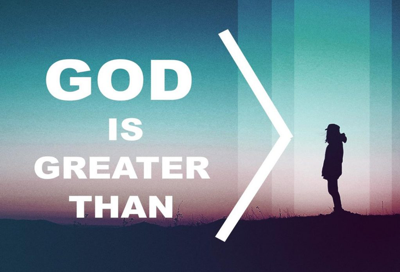 Life is marked by events of suffering, both great and small. At present there is great suffering in Turkiye (earthquake) and the Ukraine (war). Some are the products of a natural disaster impacting entire communities with grief and loss. Others are the fruit of human evil that has a profound effect on the world. Still others are private, affecting a person of a family. In all these cases people struggle to understand why it happens. And they question God’s goodness or His justice.
Life is marked by events of suffering, both great and small. At present there is great suffering in Turkiye (earthquake) and the Ukraine (war). Some are the products of a natural disaster impacting entire communities with grief and loss. Others are the fruit of human evil that has a profound effect on the world. Still others are private, affecting a person of a family. In all these cases people struggle to understand why it happens. And they question God’s goodness or His justice. 


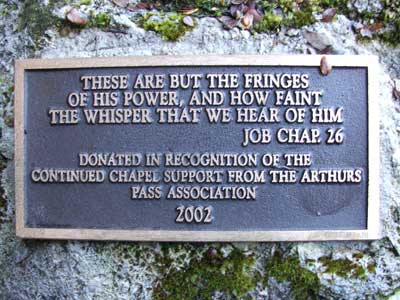






RECENT COMMENTS